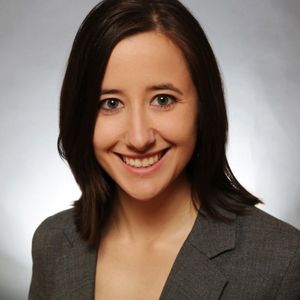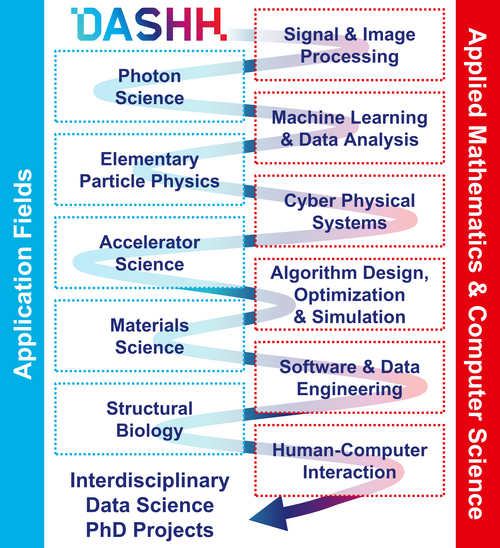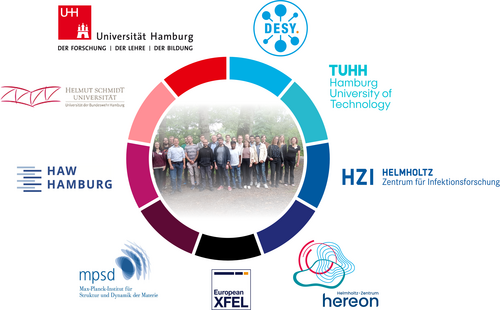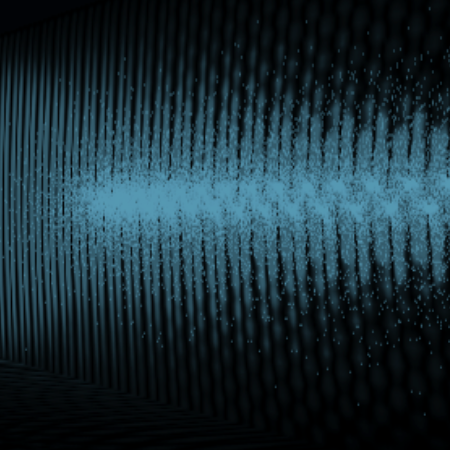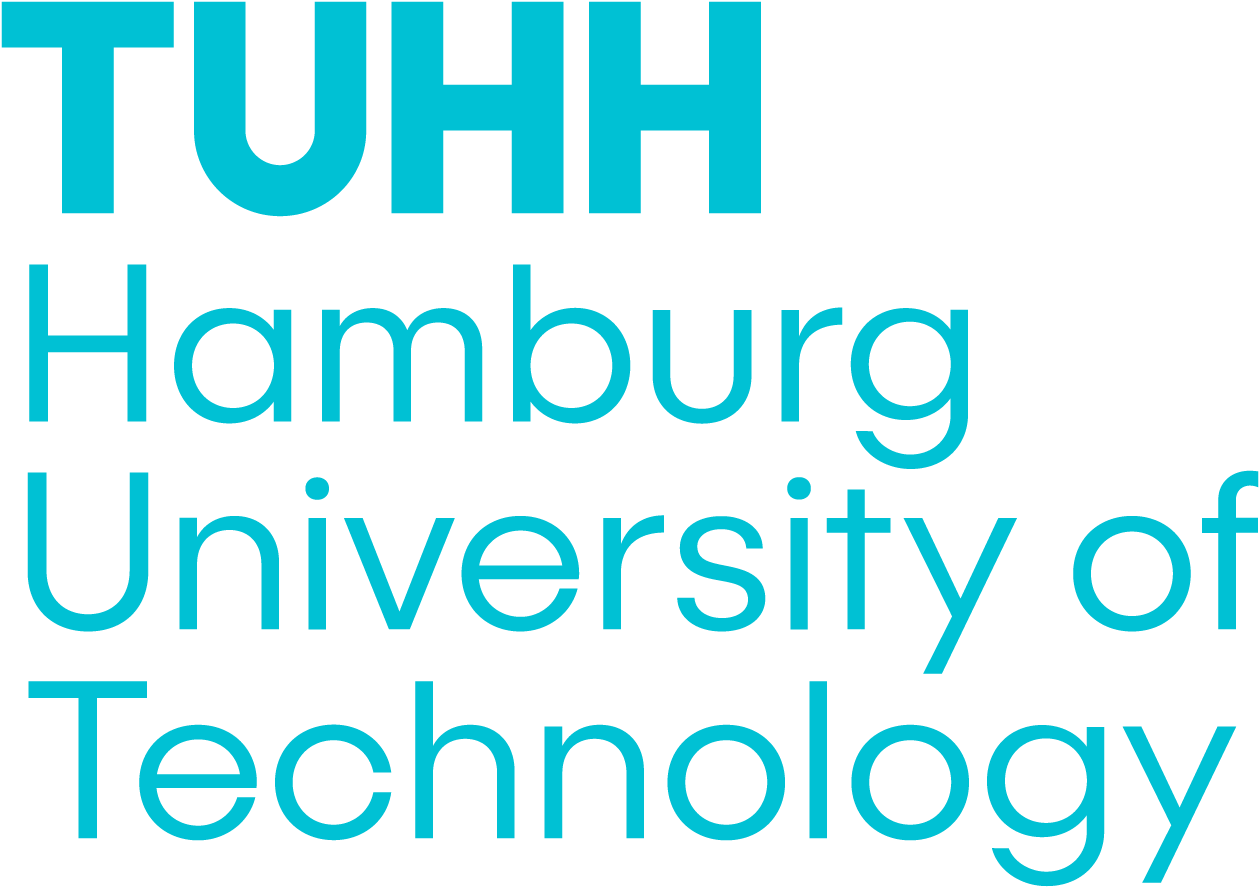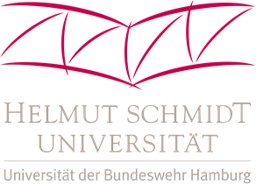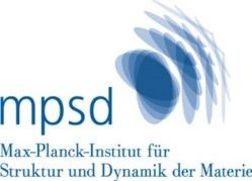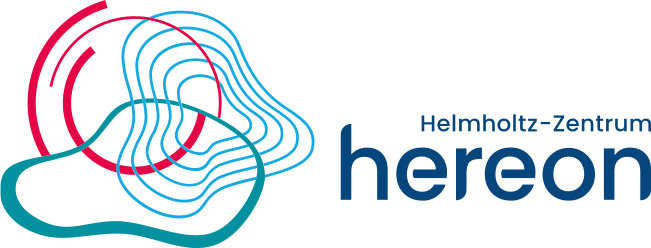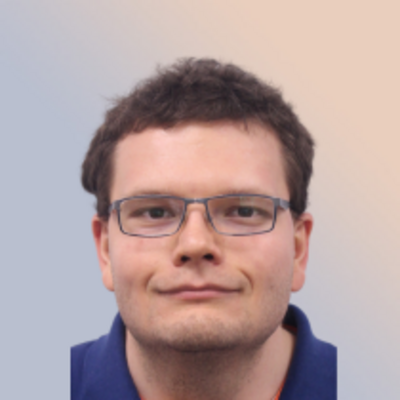Think Big: The secrets of matter are being unraveled using the world's most powerful X-ray beam and data science. The Data Science in Hamburg Helmholtz Research School for the Structure of Matter (DASHH) brings together nine partner institutions.
Exploration of Matter
DASHH brings together the expertise of scientists with a high international reputation in fundamental research on the structure of matter, computer science and mathematics in a new, unique form and enables young scientists to experiment at world-leading large-scale research facilities.

More about the research at DASHH
Reports on DASHH
Learn more about DASHH and the multi-faceted research projects it supports.
Basketball Player at the Supercomputer
Quantum computers promise unimaginable computing power - theoretically. So far, they can’t be used because their results are rife with errors. Tom Weber is working at DASHH on a software that aims to compensate for this.
For the development of new medical agents it is important to know how biomolecules, for example viruses, are structured. Bioinformatician Anna Theresa Cavasin therefore wants to use computer-assisted methods to optimize images from cryoelectron microscopy - in order to pave the way for better drugs with data science.

Mission
The goal of DASHH is to train a new generation of data scientists. They should be able to face tomorrow's scientific challenges associated with large-scale data-intensive experiments. In doing so, DASHH develops new collaborative approaches to analyze complex, heterogeneous data using intelligent algorithms.
Research Areas
PhD researchers at DASHH address questions from various research fields such as structural biology, particle physics, materials science and science with ultrashort X-ray light pulses. To explore these fields, the use of modern data science techniques is required.
Gaining new knowledge is our common goal. The job we do here isn’t one that a lot of people do—and I think that understanding something at a very fundamental level at some point is amazing.
Anna Theresa Cavasin
Doctoral researcher at DASHH. She is researching how to make more accurate microscopic images of biomolecules. Read more about her project.
Curriculum
- Close supervision and support by an interdisciplinary Supervisory Panel
- Basic research from particle physics to structural biology and materials science, integrating innovative approaches from computer science and mathematics
- Opportunities to acquire the additionally required expertise through lectures at the partner universities UHH, TUHH and HSU
- Regular exchange between DASHH PIs and doctoral students through regular seminars
- Insights into current developments in the field of data science through a DASHH-initiated Data Science Colloquium
- Possibility of research at world-leading large-scale research facilities (PETRA III, FLASH, European XFEL, LHC)
- Courses for personal skills training and career development (transferable skills)
- Excellent working conditions on the vibrant and inspiring research campus in the new Science City Hamburg-Bahrenfeld
- Further series of lectures on current research topics
Funding and Duration of the Program
The projects are funded for three years. The remuneration corresponds to the salary level E13.
Application and Further Information
Numerous doctoral positions are available. DASHH is located in Hamburg. The program language is English. The application phase for new interdisciplinary projects starts in September each year, and the selection process is in January of the following year.
Contact

Dr. Heike Hufnagel Martinez
Dr. Heike Hufnagel Martinez
Scientific Coordinator DASHH
Deutsches Elektronen-Synchrotron (DESY)
Notkestr. 85
Building 61, Room 01.108
22607 Hamburg

Dr. Christiane Ehrt
Dr. Christiane Ehrt
Scientific Coordinator DASHH
Science City Hamburg
Albert-Einstein-Ring 8-10
Room 4029
22761 Hamburg
Following Institutions are Involved at DASHH
Deutsches Elektronen-Synchrotron (DESY)
University of Hamburg (UHH)
Hamburg University of Technology (TUHH)
Helmut Schmidt University (HSU)
Helmholtz Centre for Infection Research (HZI)
Max Planck Institute for the Structure and Dynamics of Matter (MPSD)
European XFEL (EuXFEL)
Hamburg University of Applied Sciences (HAW)
Helmholtz-Zentrum Hereon
Our Doctoral Researchers

Jörn Bach
Doctoral Researcher DASHH
Contacts


Radik Batraev
Doctoral Researcher DASHH

Benedict Schacht
Doctoral Researcher DASHH
Benedict Schacht

Supervisors:
- Dr. Imke Greving (Hereon)
- Dr. Berit Zeller-Plumhoff (Hereon)
- Dr. Christian Wilms (UHH)
- Prof. Simone Frintrop (UHH)
Mads Hansen Baattrup
Doctoral Researcher DASHH
Contact
Supervisors
Prof. Christian Schwanenberger (DESY, UHH)
Dr. Alexander Grohsjean (UHH)
Prof. Peer Stelldinger (HAW)



